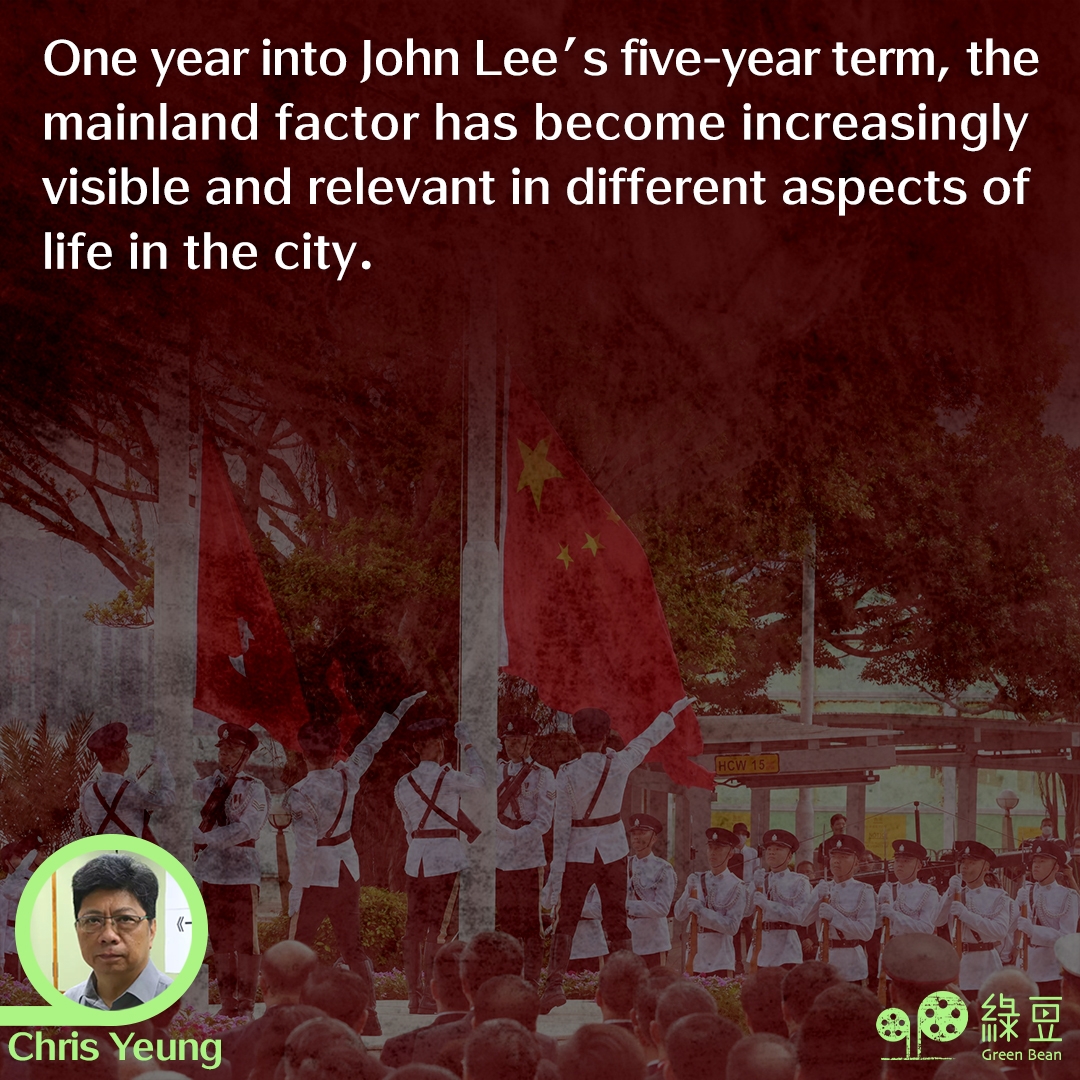HK talks global, but walks inwards

As Hong Kong entered the second half of its 50-year-old guarantee lifespan of “one country, two systems,” the contradictions between the talk of internationalisation and the walk of mainlandisation could not be more paradoxical.
In his speech delivered at the ceremony of the city’s 25th handover ceremony on July 1 last year, President Xi Jinping has assured Beijing’s full support for Hong Kong to maintain its unique status and strengths. They include keeping its status of an international financial, shipping and trade centre, free and open business environment and common law system.
Hong Kong, Xi said, should further explore free-flowing and good international connections.
Xi’s reference to “international connections” has been interpreted and lauded as a deliberate move to assuage fears in the international community over the future of the city amid uncertainties caused by the enactment of a law on national security and the shattering of the civil society.
The vital role of Hong Kong as an international city in China’s next stage of development has since then been highlighted in speeches made by mainland officials in charge of Hong Kong affairs.
In a speech delivered in April, head of the central government’s Liaison Office Zheng Yanxiong gave a lengthened version of late patriarch Deng Xiaoping’s assurance of the preservation of horse-racing and dancing in Hong Kong after 1997, which are symbols of the enclave’s capitalistic lifestyle.
Zheng said not just horse-racing and dancing will continue stock trading, the use of foreign languages and English names will continue. Hong Kong, he said, should tread well on the path of internationalisation.
The rhetoric of Hong Kong eyeing on the globe, however, contrasts oddly with the acceleration of the pace of the city’s embracing with the mainland, in particular the Greater Bay Area, after Chief Executive John Lee took office.
In a high-profile trip loaded with more symbolism than substance, Lee led half of his team of ministers, or eight out of 15, to knock on the doors of ministries and departments in Beijing after the end of the National People’s Congress plenum in March.
Since then, visits of senior government officials from various policy bureaus and departments to Beijing and the neighbouring Guangdong provinces and cities have become routine. A delegation led by Secretary for Civil Service Ingrid Yeung traveled to Beijing to attend classes, followed by fact-finding visits to other cities, to know more about the country.
Before and for a long period of time after 1997, high-fliers in the Government had been sent to attend public administration and management courses at Harvard University and Stanford University.
Beginning this year, the overseas studies arrangements for senior civil servants had terminated. Senior civil servants have and will be sent regularly to attend courses at a Peking University management institute.
Some pro-Beijing lawmakers have suggested senior officials should be seconded to work in government departments in the mainland to learn how they manage.
Faced with a new wave of migration in the wake of the 2019 social movement and labour shortage, the Lee administration has launched a global scheme to lure talents and a new plan to import foreign workers. Most of the new blood and workforce are expected to come from the mainland.
Cathay Pacific, the city’s global flag-carrier, has announced an intensified recruitment drive for putonghua-speaking flight attendants in the mainland. It came after the airline was vehemently criticised by mainland netizens over an alleged discrimination against a non-English native passenger by their flight attendants.
One year into John Lee’s five-year term, the mainland factor has become increasingly visible and relevant in different aspects of life in the city. The Greater Bay Area, meanwhile, has been widely seen as a vast piece of land with possibilities of solutions to Hong Kong’s problems such as ageing population, housing and manpower shortage.
The growing dependence of Hong Kong on the mainland has raised doubts about its unique role and strengths as an international hub that Xi has asked to be preserved in his July 1 speech.
The seemingly contradictions over the trajectory of development of Hong Kong are by no means an academic issue, but a real question that has profound implications on the city’s long-term development.
There is no doubt the city’s long-term viability lies with its fundamental strengths and role as an international financial and business hub with freedoms and rule of law, independent judiciary and professional civil service.
Any erosion and weakening of those strengths in the process of integration with the hinterland will result in a lose-lose situation.
▌[At Large] About the Author
Chris Yeung is a veteran journalist, a founder and chief writer of the now-disbanded CitizenNews; he now runs a daily news commentary channel on Youtube. He had formerly worked with the South China Morning Post and the Hong Kong Economic Journal.